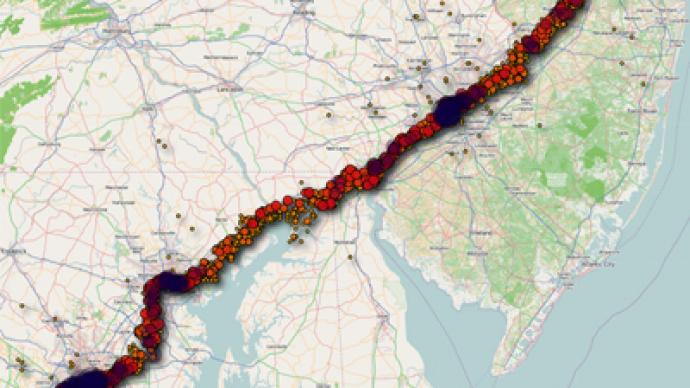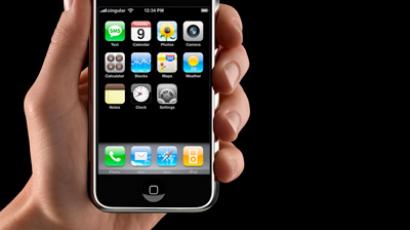Apple tracking debate rages as white iPhone4 released

The much anticipated white iPhone4 has been released amid new announcements the iPhone is the most popular smartphone and an ongoing debate of an Apple tracking scandal.
The discovery by a group of researchers that iPhones track, store and date stamp location data sparked a global privacy debate. Location based data; latitude and longitude coordinates are kept on file on the phone and synced with the user’s computer. Anyone with access to the phone or computer, even remotely, could easily discover every movement being made the user."Apple has made it possible for almost anybody – a jealous spouse, a private detective – with access to your phone or computer to get detailed information about where you've been," Pete Warden, one of the researchers, told British newspaper The Guardian.Since the discovery however Apple has denied tracking was the motive. Instead, the file boasts practice applications, the company said."Apple is not tracking the location of your iPhone," a press release said. "Rather, it's maintaining a database of Wi-Fi hotspots and cell towers around your current location … to help your iPhone rapidly and accurately calculate its location when requested."The phones do not plot and track exact locations, but relative locations based on the user’s surroundings. The log creates a general path that indicates a user’s approximate current and past locations. Some privacy advocates are still, however, crying foul. "Look, it is tracking. It's a question of whether I can track you to a five mile radius near a cell tower or pinpoint track you to five meters," Ted Marzilli, global managing director of the BrandIndex at YouGov, told The Huffington Post. "Apple is clouding the issue by saying they're not tracking but then describing something that sounds very much like tracking."Another concern of some is what Apple, or others, might be able to do with the data."I think they're being totally disingenuous. I'm willing to believe they did not use it to locate people, but God knows they could use it," Jonathan Yarmis, an independent analyst said. "The concern is, do they know where you are? What they're saying is, 'No, we've never used this to identify where someone is.' But should someone be so inclined they could use that information to locate me to a high degree of precision.""What they're talking about is maintaining a breadcrumb trail of your device over time. That's what we all mean by tracking," added Ted Morgan, CEO of Skyhook, a Wi-Fi technology company. "It's a very good signature of your life and can be used to figure out who you are."














